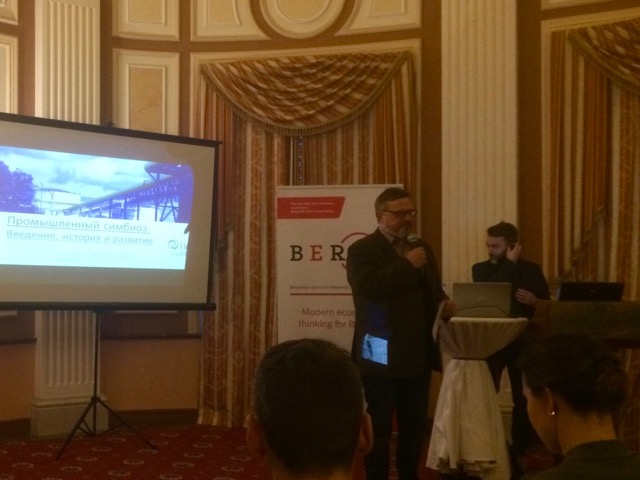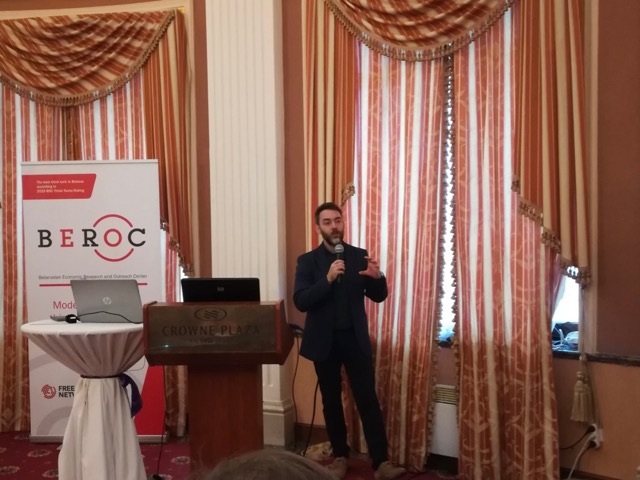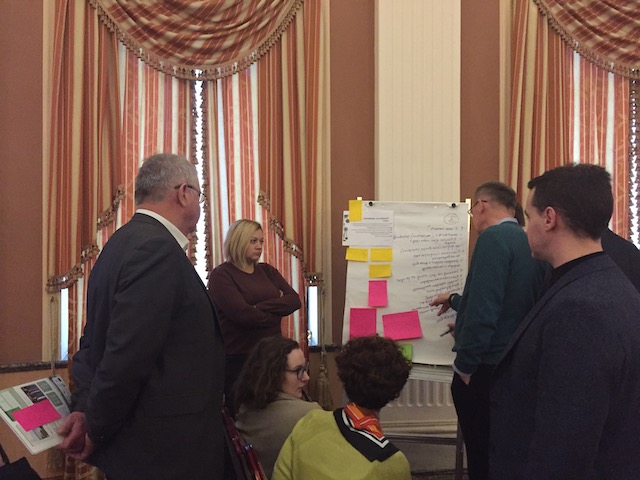Green economy
Seminar ”Industrial Symbiosis as a Regional Development Instrument: The Swedish Experience for Belarus”
BEROC and IVL Swedish Environmental Research Institute held an international seminar "Industrial Symbiosis as a Regional Development Instrument: The Swedish Experience for Belarus" on December 12, 2019.
Industrial Symbiosis stipulates involvement of enterprises in active cooperation taking into account their regional and territorial location to optimize production costs through the use of by-products and waste as raw materials. Industrial symbiosis is considered as a new tool for regional development that enables for cross-sectoral and multi-stakeholder resource, knowledge and innovation exchanges and for reduction of the negative impact on the environment.
The seminar was opened by Pavel Daneyko, Director of BEROC. He stressed the importance of industrial symbiosis for the development of circular economy, and noted the opportunity to obtain significant economic, environmental and social results from its implementation in the Republic of Belarus.

The main speaker at the seminar was a senior researcher of IVL, Dr. Michael Martin. Dr. Martin received his PhD in Environmental Systems Analysis and Management from the University of Linköping, Sweden, in 2013 for his research on the quantitative assessment of environmental and economic efficiency in the implementation of industrial symbiosis and circular production. His experience and ongoing work include the development of quantitative and qualitative methods for assessing sustainable economic development. Michael Martin is a board member of the International Society for Industrial Ecology.

The seminar and workshop was moderated by Natalia Apanasovich, Project Coordinator for the Green Economy part.
The seminar has attracted interest of practitioners and experts and allowed them to learn about best Swedish practices in industrial symbiosis and circular production. During the seminar, participants discussed current initiatives in industrial symbiosis networks, material and energy synergies, circular economy initiatives, possible future synergies based on knowledge of industrial development, important sectors and firms to explore further, opportunities and barriers for industrial symbiosis in Belarus. The participants noted the relevance of the topic and the possibility of using the information received for a roadmap of the industrial symbiosis development in Belarus.

More than 50 participants took part in the event. Among them are representatives of the Ministry of Economy, the Ministry of Natural Resources and Environmental Protection, the Ministry of Finance, the State Institution "Secondary Material Resources Operator", the Academy of Sciences, the BelSN Association, UNDP, the Wuppertal Climate Institute, environmental organizations, and others.
IVL is the leading Swedish institute for environmental research, established by the state and the business community. Since 1966, it has been developing new solutions to environmental and sustainable development problems, both nationally and internationally. The Institute works with applied research on environmental, economic and social issues of sustainable growth in the economy. IVL employs more than 250 people with a broad range of competences covering all areas of environmental protection and sustainable development.
